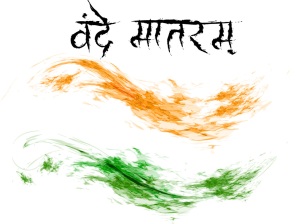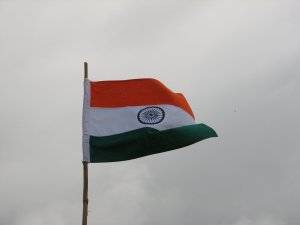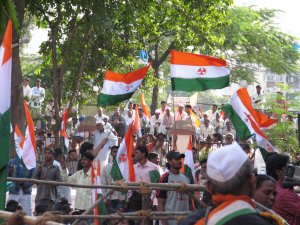This is what Supreme Court of India had to say when petition was filed to lift a ban in 1964 on Lady Chatterley’s Lover by D.H. Lawrence:
It is convenient to set out s. 292 of the Indian Penal Code at this stage:
“292. Sale of obscene books etc. : Whoever- (a) sells, lets to hire, distributes, publicly exhibits or in any manner puts into circulation, or for purposes of sale, hire, distribution, public exhibition or circulation, makes, produces or has in his possession any obscene book, pamphlet, paper, drawing, painting, representation or figure or any other obscene object whatsoever, or
(b) imports, exports or conveys any obscene object for any of the purposes aforesaid, or knowing or having reason to believe that such object will be sold, let to hire, distributed or publicly exhibited or in any manner put into circulation, or
(c) takes part in or receives profits from any business in the course of which he knows or has reason to believe that any such obscene objects are, for any of the purposes aforesaid, made, produced, purchased, kept, imported, exported, conveyed, publicly exhibited or in any manner put into circulation, or
(d) advertises or makes known by any means whatsoever that any person is engaged or is ready to engage in any act which is an offence under this section, or that any such obscene object can be procured from or through any person, or
(e) offers or attempts to do any act which is an offence -under this section,
19(1) All citizens shall have the right-
(a) to freedom of speech and expression; (2) Nothing -in sub-clause (a) of clause (1) shall affect the operation of any existing law, or prevent the State from making any law, in so far as such law imposes reasonable restrictions on the exercise of the right conferred by the said sub-clause in the interests of public order, decency or morality”
No doubt this article guarantees complete freedom of speech and expression but it also makes an exception in favour of existing laws which impose restrictions on the exercise of the right in the interests of public decency or morality.
Condemnation of obscenity depends as much upon the mores of the people as upon the individual. It is always a question of degree or as the lawyers are accustomed to say, of where the line is to be drawn. It is, however, clear that obscenity by itself has extremely “poor value in the-propagation of ideas, opinions and informations of public interest or profit.” When there is propagation of ideas, opinions and informations of public interest or profit, the approach to the problem may become different because then the interest of society may tilt the scales in favour of free speech and expression. It is thus that books on medical science with intimate illustrations and photographs, though in a sense immodest, are not considered to be obscene but the same illustrations and photographs collected in book form without the medical text would certainly be considered to be obscene.
“I think the test of obscenity is this, whether the tendency of the matter charged as obscenity is to deperave and corrupt those whose minds are open to such immoral influences, and into whose hands a publication of this sort may fall. . . . . it is quite certain that it would suggest to the minds of the young of either sex, or even to persons of more advanced years, thoughts of a most impure and libidinous character.”
He wants us to say that a book is not necessarily obscene because there is a word here or a word there, or a passage here and a passage there which may be offensive to particularly sensitive persons. He says that the overall effect of the book should be the test and secondly, that the book should only be condemned if it has no redeeming merit at all, for then it is “dirt for dirt’s sake”, or as Mr. Justice Frankfurter put it in his inimitable way “dirt for money’s sake.
We need not attempt to bowdlerize all literature and thus rob speech and expression of freedom. A balance should be maintained between freedom of speech and expression and public decency and morality but when the latter is substantially transgressed the former must give way.
The taboo on sex in art and literature which was more strict thirty-five years ago, seemed to him to corrode domestic and social life and his definite view was that a candid discussion of sex through art was the only catharsis for purifying and relieving the congested emotion is.
“The law seeks to protect not those who protect themselves, but those whose prurient minds take delight and sexual pleasures from erotic writings.”
via | Ranjit D. Udeshi vs State Of Maharashtra on 19 August, 1964
The word “obscene” in the section is not limited to writings, pictures etc. intended to arouse sexual desire. At the same time the mere treating with sex and nudity in art and literature is not per se evidence of obscenity.
Exception. – This section does not extend to any book, pamphlet, writing, drawing or painting kept or used bona fide for religious purposes or any representation sculptured, engraved, painted or otherwise represented on or in any temple, or on any car used for the conveyance of idols, or kept or used for any religious purpose.”
This was I think long back, but the views have not changed ever since the. The idea that somethings are bad for everyone is something which all cultures adhere to, and it is very hard for people, especially people in power to let this notion go. This is another way of controlling people. This is what is common to fundamentalism and democracy. The notion that our past was a golden one, and anything new will harm it and jeopardize the future of the culture. From what I feel is that there was no golden past, it just was.
And thinking about morality, though they say that there are some universal principles, everyone does not subscribe to same ones. In his theory Kohlberg, outlines these differences. But that said, he does not talk about obscenity, which I think it is highly cultural. For example a burqa clad woman is a common picture in certain Islamic communities, or a woman with ghunghat is all but common in certain Hindu communities, but at the same time some people might be find it too restrictive. And a woman in short skirt might be a common scene in the urban areas in certain countries, but it might be a great taboo for some others. There are no universal standards for what counts as moral or decent.





